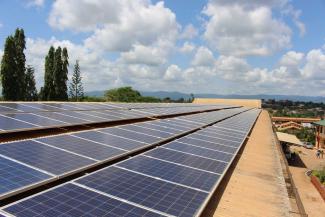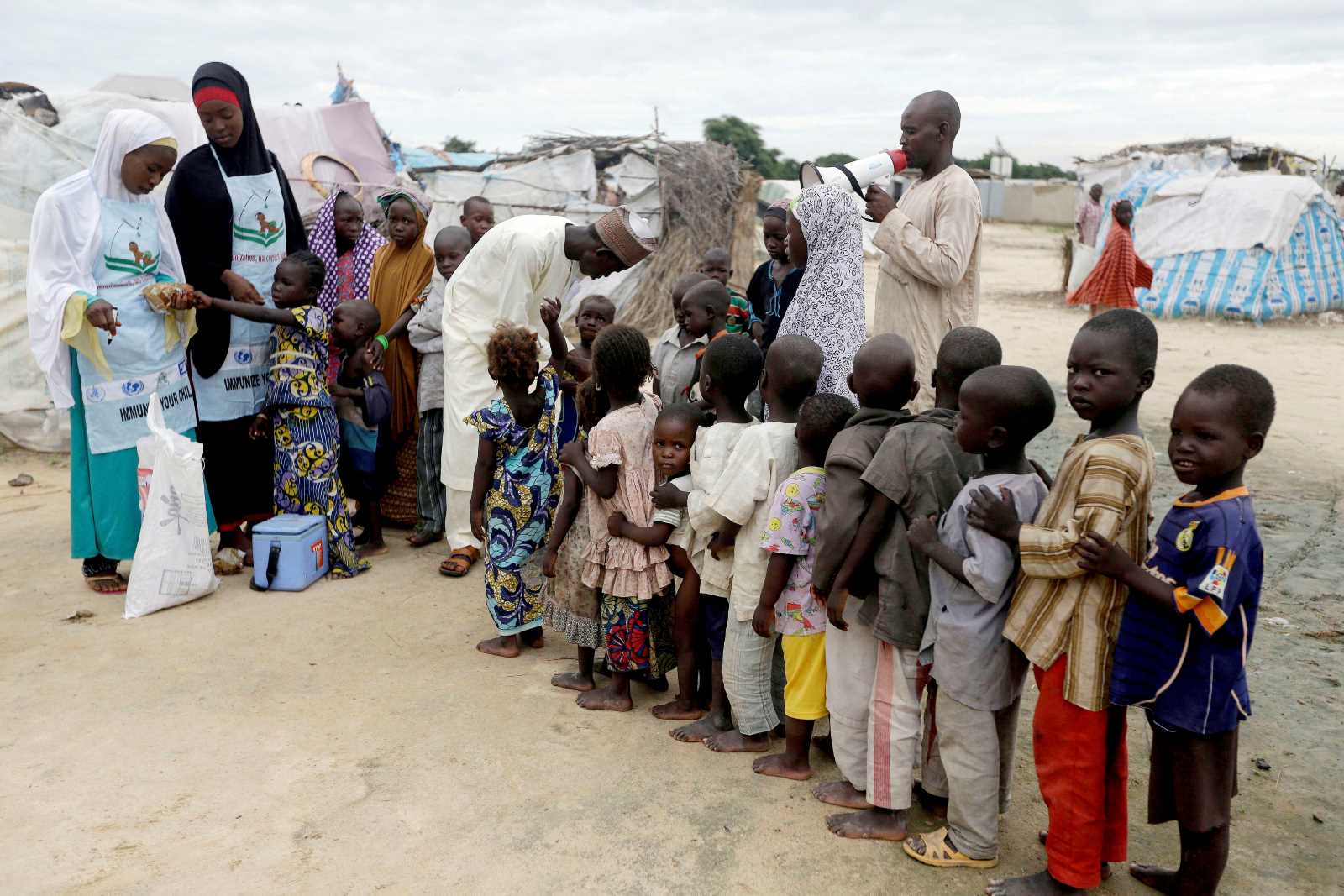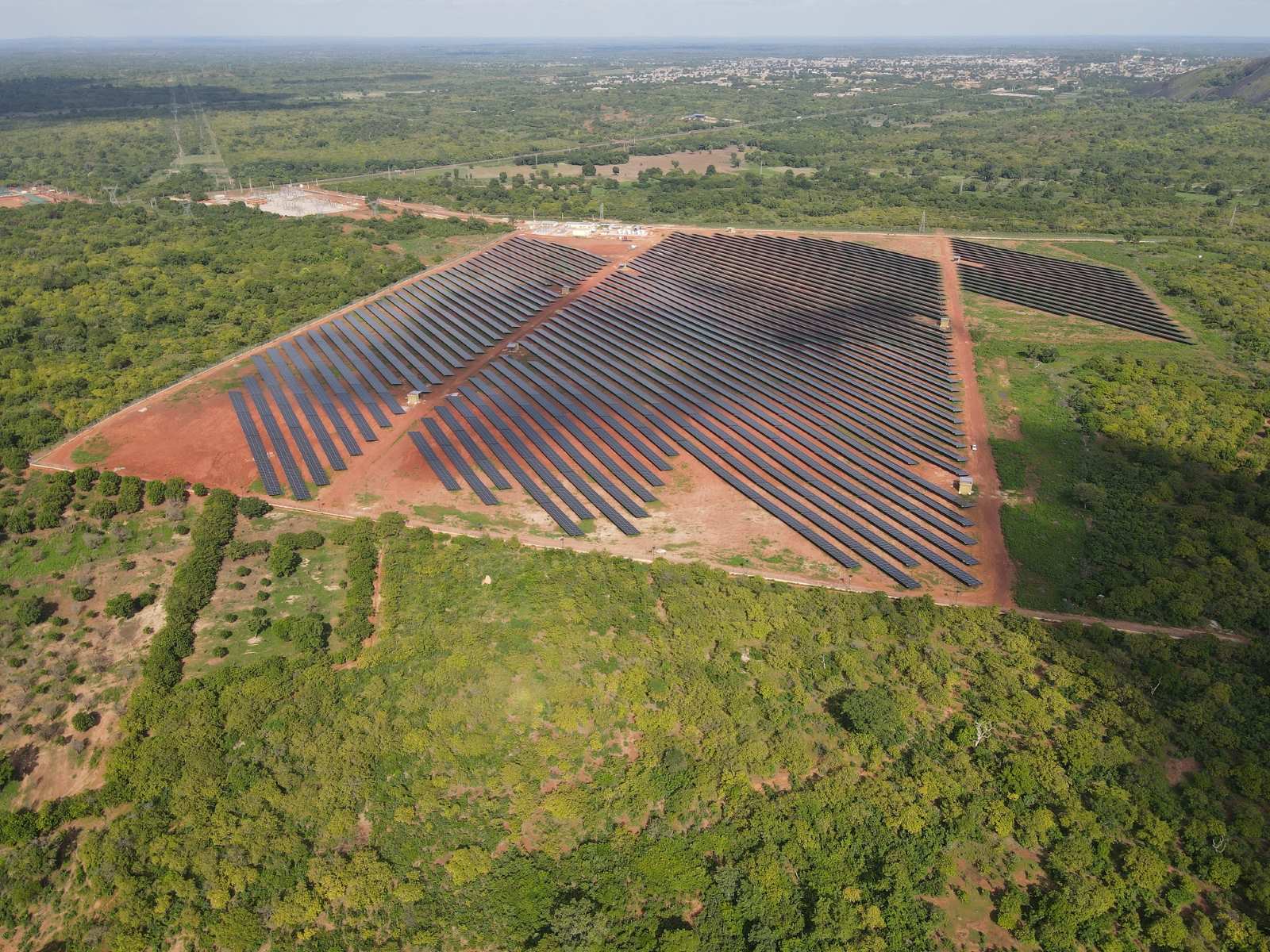Renewables
Solar energy for Ghana’s health facilities

Solar photovoltaic (PV) hybrid systems provide electricity by harvesting the sun’s energy while having a battery or diesel generator as a backup. They can either be connected to the grid or serve as standalone systems. During the Covid-19 pandemic, such systems proved a good option to quickly electrify off-grid facilities and thus guarantee important services such as cooling for vaccine storage. Adequate healthcare generally requires reliable electricity for instruments and light, among other things.
The advantages of using solar energy to supply health facilities include crucial climate aspects. For example, solar PV systems can improve the resilience of health systems to climatic challenges such as extreme weather events which affect the conventional power supply. As solar PV systems increasingly replace diesel generators, they help to reduce greenhouse-gas emissions and improve the local environment.
Solar PV (hybrid) systems are increasingly applied across sub-Saharan Africa including in Ghana, where interest in new forms of renewable energy grew in the late 1970s and early 1980s, driven by severe drought and energy security crises (Pedersen 2022). First solar panels were funded through bilateral or multilateral donor structures and set up in religious missions.
However, in the following decades, solar energy was not prioritised, not least because oil and gas resources were discovered in Ghana. In 2021, solar energy accounted for less than one percent of Ghana’s electricity mix which mostly relied on natural gas (62.6 %) and hydropower (34.1 %) according to data by the International Energy Agency (IEA).
From 2019 to 2023, the German-Ghanaian interdisciplinary research project EnerSHelF (Energy-Self-Sufficiency for Health Facilities in Ghana) has analysed both technical and socio-economic aspects to improve the dissemination of PV-based energy solutions for health facilities in Ghana. The results show that it is important to understand details of electricity demand and technical challenges as well as barriers perceived by health facility managers, government officials and public stakeholders. EnerSHelF has been funded by the German Federal Ministry of Education and Research.
Socio-economic aspects
While most health facilities in Ghana are connected to the grid, reliable electricity supply remains a challenge. Not only can this be dangerous for patients – life-saving instruments can fail, for example – but it can also be a financial burden as blackouts can cause damage to medical equipment. Interviews with health facility managers as well as other data collected by EnerSHelF suggest that standalone solar PV systems can help bolster the reliability in electricity supply when they are combined with grid supply.
Even though solar PV has become cheaper, costs and lack of information are still major barriers which keep health facilities from adapting such systems. Solar PV hybrid systems are particularly expensive because they consist of various components like solar panels, a battery system, grid integration and a diesel generator.
To lower the costs, it can be advisable to cooperate with public initiatives for the installation of mini-grids. This reduces the costs of procuring the system and developing the technical capacity to operate it. A mini-grid functions as a single system which is not connected to a main power grid. It can be powered by one or more energy sources.
Technical considerations
Technical equipment used in healthcare facilities is very sensitive. This is why planning a solar PV system requires an overview of the highest energy consumption during a day, the so-called load peaks. If these are not covered by the energy supply, instruments can be damaged, which can result in disrupted health services. Data collected by EnerSHelF in Ghana suggests that the maximum load can be almost twice as high as indicated by the national grid operator. It can also be useful to include the base load of the surrounding community into the planning to fully take advantage of the capacity of a solar PV system.
Other technical aspects include forecasts of solar irradiance and climatic conditions at a given place. The EnerSHelF team has carried out analyses in this field to be able to advise various stakeholders. It has also developed a web-map which practitioners and governmental stakeholders can use to explore optimised solar-mini-grids setups in off-grid or weak-grid areas in Ghana.
Moreover, one of the project partners developed a planning tool that helps with the dimensioning of PV-solar hybrid systems. The tool is publicly available and does not require technical expertise.
Ultimately, considerable political will is needed to further expand solar PV energy production in Ghana. If adequately planned, it can play a pivotal role in supplying health facilities with reliable and affordable electricity. It can strengthen the supply in both rural and urban areas and have a positive effect on the quality and distribution of health services in Ghana.
Literature
EnerShelF:
https://www.h-brs.de/en/enershelf
EnerShelF web-map for Ghana:
https://enershelf.rl-institut.de
Open-Source tool to design, simulate and evaluate PV-Diesel hybrid systems:
https://github.com/pdb-94/miguel
Pedersen, R. H., 2022: Towards a political economy of renewable energy in Ghana: a review. Accra, Merian Institute for Advanced Studies in Africa.
https://www.ug.edu.gh/mias-africa/sites/mias-africa/files/images/MIASA%20WP_2022%284%29%20Pedersen.pdf
Jonas Bauhof worked as a research assistant at the University of Applied Sciences Bonn-Rhein-Sieg and as a project assistant at European Association of Development Research and Training Institutes (EADI) for the EnerSHelF project.
jonas.bauhof@gmx.de











